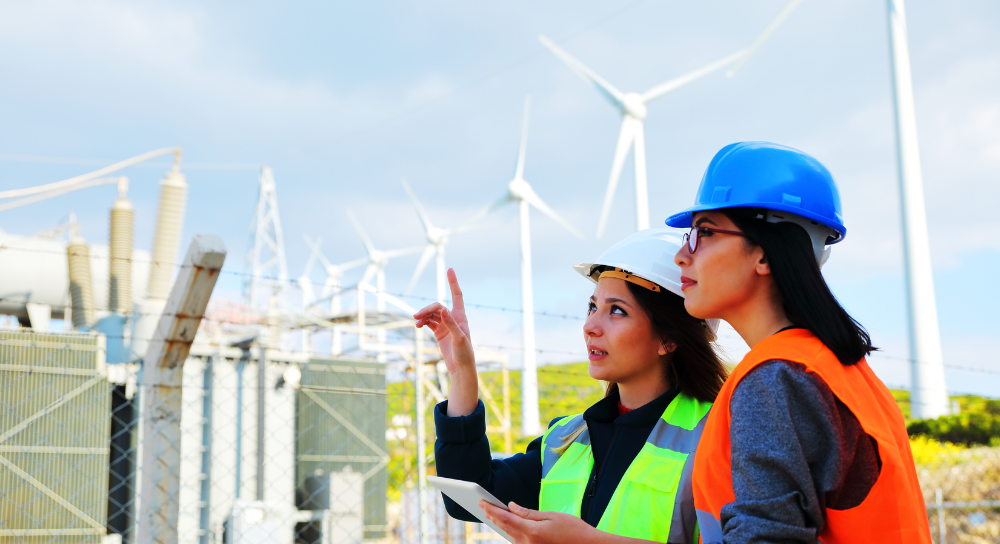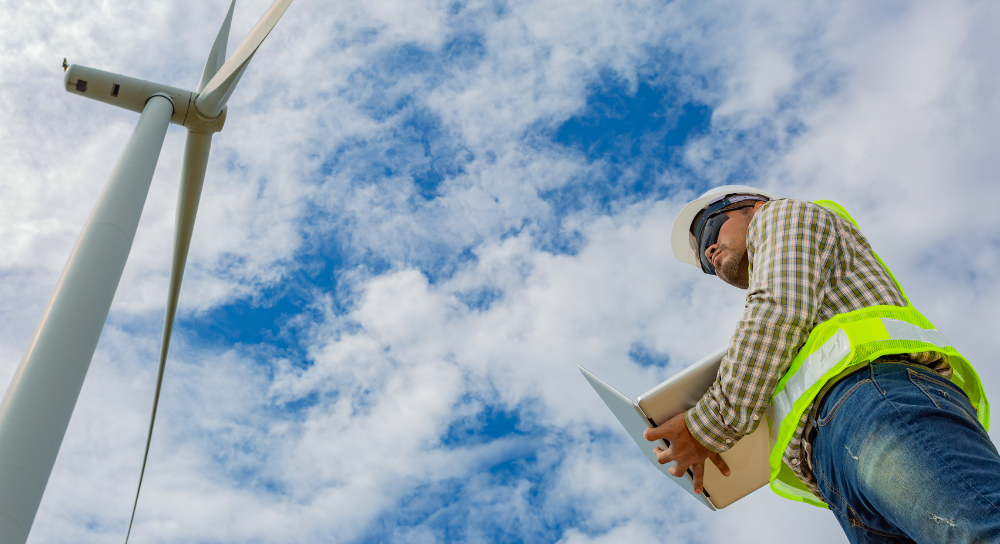The best careers in offshore wind
Offshore wind jobs in the UK are predicted to grow by 100,000 by 2030. As a result of ambitious climate targets and looming energy crisis, the country has got its foot on the pedal to produce as much clean energy as possible, with wind energy its main priority. Around £200 - 250 billion investment has been promised from offshore energy producers in UK waters over the next decade to develop its technologies and wind farms, so it is no surprise that the job market is heating up. This booming industry promises the UK not only energy security, but job security for many too.
So, let’s dive into the best careers in offshore wind right now.
View here to see the latest Offshore Construction or Subsea Installation jobs.
Is offshore wind a good career?
A career in offshore wind has many benefits. For one, you can take pride in working a job that makes a tangible difference to the world. Climate change is one of the biggest challenges facing this generation, potentially shaving off years from our future, and offshore wind is one of the most successful renewable energies that is helping us rely less on fossil fuels. And the industry is only set to surge even further, meaning exciting new pathways for your career and great longevity too.
Do offshore wind jobs pay well?
There is excellent earning potential within the offshore wind industry. Because of the nature of working environments, there are greater risks associated and higher salaries incentivise working in such conditions. Although your experience and skillset will determine the salary bracket you are eligible for, you can earn a great deal more in offshore wind than in onshore. Average salaries in offshore wind are estimated around £47,500.
Offshore wind jobs
The kinds of careers that span the offshore wind farm lifecycle are an eclectic mix to say the least. There are countless opportunities throughout the project and in various specialisms:
- Design
- Development
- Installation
- Commissioning
- Health and safety
- Logistics
- Inspection
- Operations
- Maintenance
Roles are diverse and can be easily transferred into from other renewable energy or offshore backgrounds.
Some of the best careers out there include:
Cable Jointers
High voltage cable jointing is a highly sought discipline for complex offshore wind farm projects. A degree is not always necessary but some formal training in HV jointing is required, in addition to certifications that allow the engineer to work offshore with subsea cables. It is a real hands-on role with fantastic scope for career growth. Opportunities to move into include becoming an Offshore Installation Manager or even Client Representative for testing and terminations.
Responsibilities include:
- Carrying out cable splicing, laying jointing and repairing power cables
- Working closely with the electrical package for the offshore project
- Compiling and reviewing test reports
Project Managers
As the UK government ramps up its offshore wind auction and allocation bidding, it is thought more and more wind farm projects will enter the pipeline each year to come, bringing with it the need for Project Managers.
Contracts for Project Managers tend to be long term as they are responsible for activities throughout the installation of the wind farm. Though with great responsibility comes great reward, as salaries for Project Managers can be very lucrative. Ideally, Project Managers will have a significant experience within engineering or even as a Wind Turbine Technician.
Responsibilities include:
- Overseeing the entirety of construction
- Ensuring the quality of onsite activities conform to specifications
- Organising and leading teams of contractors
- Ensuring the projects stays within budget and time restrictions
- Have involvement with contractual bidding and business development of the company.
Wind Farm Operation Managers
Wind Farm Operations Managers are one of the higher paying professions within Offshore Wind, averaging between £55-65,000 per year. An engineering degree is usually required, and jobs tend to be on a permanent basis and mostly worked onshore. It is a great career target to strive towards; at Quanta we have worked with many Projects Engineers who, over time, have worked their way up in seniority to become an Operations Manager.
Responsibilities include:
- Overseeing existing wind farm operations
- Supervising and providing technical support to workers and contractors
- Keeping records on operation and maintenance, scheduling repairs, ordering tools and equipment when needed
- Reviewing, negotiating and approving wind farm contracts
SCADA Technicians
SCADA is a system of combined hardware and software that enables automation of industrial processes by capturing real-time data. For those that are more technology focussed, SCADA Engineering is an excellent and fascinating career. SCADA Technician jobs pay around £25-35,000 depending on experience, and over time you can climb up the career ladder to become a SCADA Software Developer. A relevant degree in computing or software engineering is usually needed to get started.
Responsibilities include:
- Designing, configuring and deploying the software systems
- Ensuring control system components are functioning properly
- Ensuring security protocols are running across all networks
- Performing maintenance and handling update responsibilities for software and hardware within the system
Electrical and Commissioning Engineers
Broader disciplines that do really well in the offshore wind space include engineering with an electrical or commissioning bias. They offer great day rates, and their skillsets are in high demand throughout the construction industry as a whole. In our experience, engineers will hold longer contracts and clients will continue to return to trusted contractors on following projects. The global engineering market is incredibly strong at the moment and predicts a further CAGR of 4.2% in the next year, so as an engineer there is an added benefit of great job security.
How do I get an offshore wind job?
Find your specialism: The spectrum of jobs within the offshore wind space is far reaching. Assess your existing qualifications, skillsets and experiences to find out where you fit. For example, an electrical engineering degree could lend well into becoming Cable Jointer, an Electrical Sales Engineer, or if you have significant experience already in offshore wind, as a Project Manager.
Get skilled: Perhaps you don’t quite hold the correct qualifications for your dream job? This is an opportunity for you to invest in some further education or training courses. There are also certain certifications needed before you can work offshore, including:
- BOSEIT (Basic Offshore Safety Induction and Emergency Training)
- Offshore medical certificate
- GWO certifications
Research: It is a fast-moving industry, so you will want to keep an eye on new projects being announced and how to keep your CV and skills up to date so that you are at the top of your candidate pool.
Consider your availability: Especially within the early stages of a wind farm installation, jobs tend to be on a contractual rather than permanent basis. Think about the logistics of your career in offshore wind and whether moving project to project suits your lifestyle better, or a permanent role.
Quanta can help
Offshore and onshore wind are the UK’s best hopes in meeting climate targets and securing a sustainable future. Jobs in the industry are only set to grow and at Quanta we are already understanding the pressure our clients are feeling to fill positions in their offshore wind farm builds. Are you interested in moving into an offshore wind job, and want to talk to the experts on how to get there? Contact us at Quanta to start your next career step or check out our offshore wind job vacancies.






.png?v=9c66da852d51be41fe90acf5046b80f7)
.png?v=b063bae722cc20e86f7c80b91426db55)
.png?v=36a90c86dfc9fe9c10b03095e461dfe9)